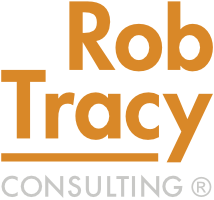Attracting and retaining good talent is important for every small business. Without talented employees, it is hard for any businesses to grow or thrive.
I recently picked up a book titled Mastering The Hire, by Chaka Booker. The subtitle is what caught my eye: 12 Strategies To Improve Your Odds Of Finding The Best Hire. If you have done much interviewing and selection, you know it can be a 50/50 chance you will select the right person. With these odds, just toss a coin? But few are willing to choose our next co-worker with a coin. We want to see them, hear their words, feel their energy and decide if we like them – we want an intangible “fit”.
Let’s improve your hiring hit-rate. First, pick up the book. It really does have excellent research, insight, interview questions. However, many of the techniques involved will only be mastered if you practice and hire A LOT. Small businesses often do not hire enough to get much practice.
However, this book is about you – the interviewer – becoming mindful and mentally aware of your own self, biases, interests, impressions, etc., and “Mental preparation serves as a foundational tenet for every practice in this book” (pg 188). You can get to the bottom of the real skills sitting on the other side of the desk and improve your selection skills if you put your mind to it.
If you do not have time to read this book or implement the strategies that will increase your odds of hiring someone who can do the job, then I suggest at least try Strategy 1 “parking your first impressions.” This might be the easiest and most awareness inducing thing you can do. When you first meet the candidate, and are sitting across from them, draw a line on your page as if it is a scale, with YES at one end, NO at the other and I DON’T KNOW in the middle. Rate your first impression of the candidate and if they are good for the job, by putting an X on the line.
Now, let this thought go. Interview and ask questions mindfully trying to prove they are/are not a skilled candidate. Review the first impression later to better understand your own mind and ask yourself (or others interviewing) what their first impressions of the candidate were and why? Try to neutrally ID why you thought they were a strong candidate or not. Over time, this genuine discussion and contemplation will help you discern what biases you bring into the interview. If you discover you have strong pre-conceived ideas at the start, check them, and then take time to read this book to uncover where these ideas come from, how to better manage your intuition and remove bias from the process.
Why take the time to do this? Can you master the hire? Yes – becoming more mindful and aware will help you and it is in your best interest to wisely use your time, selecting not the best interviewed candidate, but the best skilled candidate for your job.
